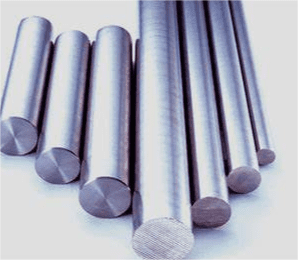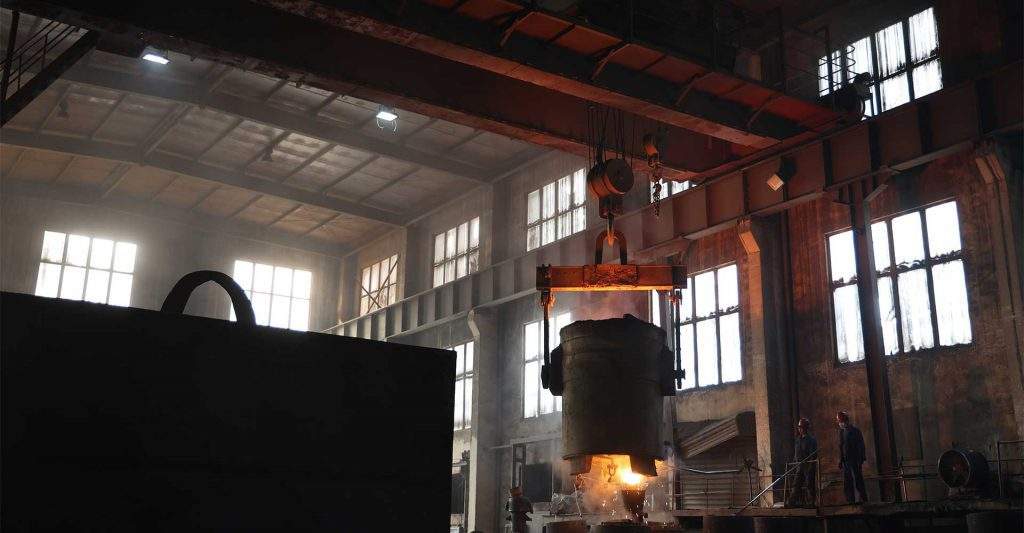Introduction
The automotive industry continuously seeks materials that can provide the perfect balance between strength, weight, and durability. One such material that has gained significant traction in recent years is 4130 alloy steel. Renowned for its exceptional properties, 4130 alloy steel is increasingly becoming the material of choice for various automotive applications. This blog explores why 4130 alloy steel is ideal for automotive manufacturing, diving into its properties, benefits, applications, and more.
Understanding 4130 Alloy Steel

What is 4130 Alloy Steel?
4130 alloy steel is a low-alloy steel containing chromium and molybdenum as strengthening agents. Its chemical composition typically includes about 0.30% carbon, 1.0% chromium, 0.2% molybdenum, along with traces of manganese, silicon, phosphorus, and sulfur. This composition gives 4130 steel its characteristic strength and hardness.
Key Properties of Alloy Steel 4130
Strength and Toughness
One of the standout features of alloy steel 4130 is its high strength-to-weight ratio. It offers excellent tensile strength, making it ideal for components that need to withstand high stress.
Weldability
4130 steel is known for its good weldability, allowing for easy fabrication and repair. This property is particularly beneficial in automotive manufacturing, where welding is a common process.
Hardness and Ductility
The steel’s hardness and ductility can be enhanced through various heat treatment processes, making it adaptable to different automotive applications.
Corrosion Resistance
While not as corrosion-resistant as stainless steel, 4130 alloy steel offers moderate resistance to corrosion, especially when coated or treated appropriately.
Benefits of Using Alloy Steel 4130 in Automotive Manufacturing
Lightweight Yet Strong
Weight Reduction
One of the primary goals in automotive design is to reduce weight without compromising strength. alloy steel 4130 achieves this balance, contributing to improved fuel efficiency and performance.
Structural Integrity
Despite its lightweight nature, alloy steel 4130 maintains high structural integrity, making it ideal for critical automotive components such as chassis, roll cages, and suspension parts.
Cost-Effectiveness
Material Costs
Compared to other high-performance materials like titanium, alloy steel 4130 is relatively cost-effective, providing a budget-friendly option for automotive manufacturers.
Manufacturing Efficiency
The ease of fabrication and welding of 4130 steel translates to lower manufacturing costs and faster production times.
Versatility
Customization
The versatility of alloy steel 4130 allows for customization through various heat treatments and coatings, making it suitable for a wide range of automotive applications.
Broad Application Range
From high-performance racing cars to standard passenger vehicles, alloy steel 4130 can be used in numerous automotive components, including drive shafts, gears, and crankshafts.
Applications of 4130 Alloy Steel in Automotive Manufacturing
Chassis and Frame Construction
Strength and Safety
The chassis and frame of a vehicle are crucial for its safety and performance. 4130 alloy steel provides the necessary strength and toughness to ensure structural integrity in these critical components.
Weight Considerations
Using 4130 steel helps in reducing the overall weight of the vehicle, which enhances fuel efficiency and performance without compromising safety.
Roll Cages and Safety Structures
High Impact Resistance
In motorsport and high-performance vehicles, roll cages made from 4130 alloy steel offer excellent impact resistance, protecting drivers during collisions and rollovers.
Regulatory Compliance
4130 steel roll cages often meet or exceed safety regulations set by automotive racing organizations, making them a preferred choice in competitive racing.
Suspension Components
Durability
Suspension components are subject to constant stress and strain. 4130 alloy steel’s durability ensures these parts can withstand rigorous use over time.
Performance
The strength and flexibility of 4130 steel contribute to better handling and ride comfort, essential aspects of automotive performance.
Drivetrain and Powertrain Parts
Gears and Shafts
Gears and shafts made from 4130 alloy steel benefit from its excellent tensile strength and hardness, which are crucial for transmitting power efficiently in the drivetrain.
Customization Through Heat Treatment
Heat treatment processes can tailor the hardness and toughness of 4130 steel, optimizing these parts for specific performance requirements.
Comparison of 4130 Alloy Steel with Other Automotive Materials

To better understand the advantages of 4130 alloy steel, let’s compare it with other commonly used materials in automotive manufacturing.
| Property | 4130 Alloy Steel | Stainless Steel | Aluminum | Titanium |
|---|---|---|---|---|
| Density | 7.85 g/cm³ | 7.75-8.05 g/cm³ | 2.70 g/cm³ | 4.50 g/cm³ |
| Tensile Strength | 560-970 MPa | 485-620 MPa | 310-570 MPa | 895-930 MPa |
| Weldability | Excellent | Good | Good | Fair |
| Cost | Moderate | High | Low | Very High |
| Corrosion Resistance | Moderate | Excellent | Good | Excellent |
Conclusion
4130 alloy steel stands out as an ideal material for automotive manufacturing due to its excellent balance of strength, weight, cost-effectiveness, and versatility. Its application in critical components such as chassis, roll cages, suspension parts, and drivetrain elements underscores its importance in the industry. As automotive technology continues to evolve, the demand for materials like 4130 alloy steel that offer superior performance and efficiency will only grow.
FAQ
What makes 4130 alloy steel suitable for automotive manufacturing?
4130 alloy steel is ideal for automotive manufacturing because of its high strength-to-weight ratio, excellent weldability, and adaptability through heat treatment. These properties make it suitable for various critical components in vehicles.
How does 4130 alloy steel compare to stainless steel in automotive applications?
While stainless steel offers superior corrosion resistance, 4130 alloy steel provides better strength-to-weight ratio and cost-effectiveness. This makes 4130 steel more suitable for components where weight reduction and strength are critical, such as chassis and roll cages.
Can 4130 alloy steel be heat treated for specific automotive applications?
Yes, 4130 alloy steel can undergo various heat treatment processes to enhance its mechanical properties, such as hardness and toughness. This customization makes it suitable for specific automotive applications like gears and shafts.
What are the common applications of alloy steel 4130 in automotive manufacturing?
Common applications of alloy steel 4130 in automotive manufacturing include chassis and frame construction, roll cages, suspension components, and drivetrain parts like gears and shafts.
Is alloy steel 4130 cost-effective for automotive manufacturers?
Yes, alloy steel 4130 is relatively cost-effective compared to other high-performance materials like titanium. Its ease of fabrication and welding also contribute to lower manufacturing costs, making it a budget-friendly option for automotive manufacturers.
